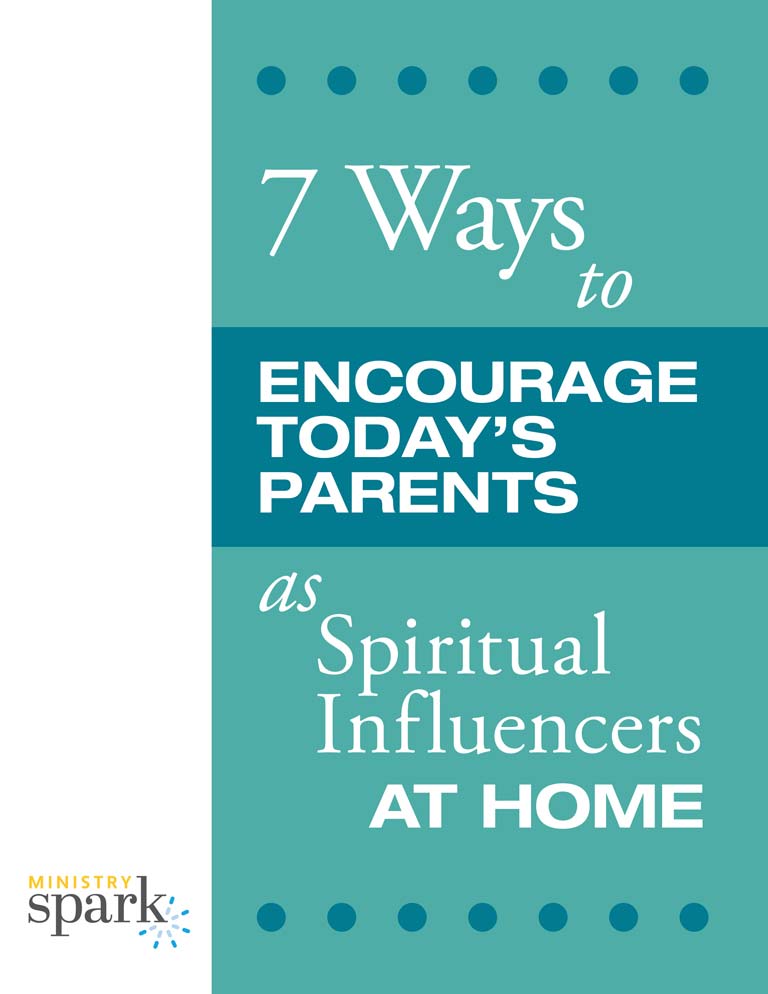In our roles as Christian educators, youth pastors, speakers, and Christian apologists, my coauthor, Sean McDowell, and I have talked to a lot of parents. At our speaking engagements and community events, we’re often approached by parents who sense their kids are starting to drift from their Christian foundation. Parents regularly ask, “What book can I give to my son (or daughter) to help them answer their questions about Christianity?”
Books are great—and we’ve written our share—but unless you’re willing to read them together with your kids or students (and they are similarly willing to engage in the process), books only provide truth. Books can’t provide the personal relationship you need to allow you to speak into their lives and be heard.
What do I need to do to strengthen the relationships I have with my kids so I can continue to speak into their lives?
The better questions might be, “What do I need to know to help my daughter (or son) answer the questions they have about Christianity? What do I need to do to strengthen the relationships I have with my kids so I can continue to speak into their lives and become the kind of person they want to engage on these issues?”

When we encourage parents to become the best Christian apologists their kids will ever know, we do so because we understand the connection between truth and relationships. Given this reality, here are a few suggestions:
Make a Commitment
The statistics related to Gen Z (young people aged 3-19) and their departure from the Church can seem daunting. Allow the sobering numbers to ignite a fire in your soul. God has a role for each of us in this time of crisis, even though He is still in complete control. God calls us to respond.
The Apostle Paul understood a similar calling when he wrote his letter to the Colossians. He knew he would have to sacrifice his comfort and his desires to accomplish a greater work. To serve the Church as a leader, minister, and steward, Paul committed himself to the mission: “For this purpose also I labor, striving according to His power, which mightily works within me” (Colossians 1:29).
Each of us, in our own small way, can contribute to the important work of raising the next generation of Christians if we will simply commit ourselves to the task.
Each of us, in our own small way, can contribute to the important work of raising the next generation of Christians if we will simply commit ourselves to the task.
Start Early
According to the statistics, young Christians decide to abandon the Church long before they ever tell anyone—usually before they even leave the homes of their parents. Polls continue to show that most people in America will become Christians prior to the age of 15. In fact, one large evangelical study found that the median age of conversion is 11.
Why are older teens and young adults less likely to become Christians? If their own answers tell us anything, it’s based on their intellectual skepticism.

The age of doubt and cynicism appears to be dropping. That’s why it’s so important for us to start early—even before your kids are verbalizing their questions. Moses instructed the Israelites to include children in their midst when talking about (or celebrating) God “so that they may hear and learn and fear the Lord your God” (Deuteronomy 31:12).
It’s tempting to think your church’s high school youth ministry can eventually address the issues we’ve described, but the data tells a different story. We must start much earlier.

Ready to help parents create an environment for spiritual growth?

Ready to help parents create an environment for spiritual growth?

Ready to help parents create an environment for spiritual growth?
Take on the Tough Issues
Take another look at some of the responses offered by young people in the studies we’ve cited. Imagine getting some of these questions from the young Christians in your life:
- “What scientific proof do you have that God exists?”
- “Why should I believe in miracles?”
- “If evolution is true, why should I believe in God?”
- “Why should I trust something on ‘faith’ when I could use ‘reason’?”
- “Why should I trust what you or my pastor says about Christianity?”
- “How is believing in God any different than believing in Santa Claus or the Easter Bunny?”
- “Why does science seem to contradict the claims of Christianity?”
- “Why would an all-powerful, all-loving God allow so much evil in the world?”
- “How can I be sure Jesus really rose from the grave?”
- “If Christianity is true, why are so many Christians hypocrites?”
- “Why is the history of Christianity filled with so much violence?”
- “Why should I care about any of this to begin with?”
Are you ready to answer these difficult questions? Most of us aren’t. But the data tells us that these are precisely the kinds of questions we need to be prepared to answer if we want to help young people find the truth and follow the Savior.
Don’t let these difficult questions intimidate you. God is bigger than any of these objections and each question listed here can be answered.
How much more confident should we be that the Spirit of our Father will speak through us if we are willing to discuss the toughest issues?
Jesus told his followers to be courageous in the face of far greater oppression and resistance (Read Matthew 10:16-20). How much more confident should we be that the Spirit of our Father will speak through us if we are willing to discuss the toughest issues?
Be Patient
I wasn’t raised in a Christian home. I was thirty-five years old before I set foot in an evangelical church for anything other than a wedding or a funeral. If you would have known me just one month prior to that time, you would have said, “Man, that Jim Wallace will never become a Christian.” I was sarcastic and adamant about my position as an atheist. Yet here I am today, part of the Christian Family.

When Peter wrote, “The Lord is not slow about His promise, as some count slowness, but is patient toward you, not wishing for any to perish but for all to come to repentance” (2 Peter 3:9), he could have been writing about me. My personal experience of transformation has given me great patience with my own children.
While I understand the urgency of the Gospel, I also understand the timing of God. Don’t be impatient with yourself if you don’t seem to have all the right answers or if the young people you’re leading don’t seem to be progressing as quickly as you might like. Just do your job. Study to be approved. Speak the truth. Love young people. The rest is in God’s timing.
Stay Balanced
Finally, recognize the fact that several of the questions from young people center on broken relationships (i.e. “I had a bad experience at church with a Christian”).
When people don’t believe something we know to be true, it’s easy to lean more toward the proclamation of truth, rather than toward the building of relationships. Don’t give in to that inclination.
The Apostle Paul wrote to Timothy and commanded him to defend the truth and to “instruct certain men not to teach strange doctrines” (1 Timothy 1:3). But Paul understood the delicate balance between truth and love, doctrine and relationship. He told Timothy that the “goal of our instruction is love from a pure heart and a good conscience and a sincere faith” (1 Timothy 1:5).
Our instruction—especially toward those who are younger—is a vehicle for truth, fueled by loving relationships. Our challenge is to avoid tilting our approach too far in either direction.

These simple principles (excerpted from So the Next Generation Will Know) will help you raise kids who are confident in their Christian faith. But it’s only a start. Our book describes many other practical, accessible strategies and principles that parents, youth pastors, and Christian educators can employ to teach the youngest Christians the truth of Christianity. The book is accompanied by an eight-session So the Next Generation Will Know DVD Set (and Participant’s Guide).










